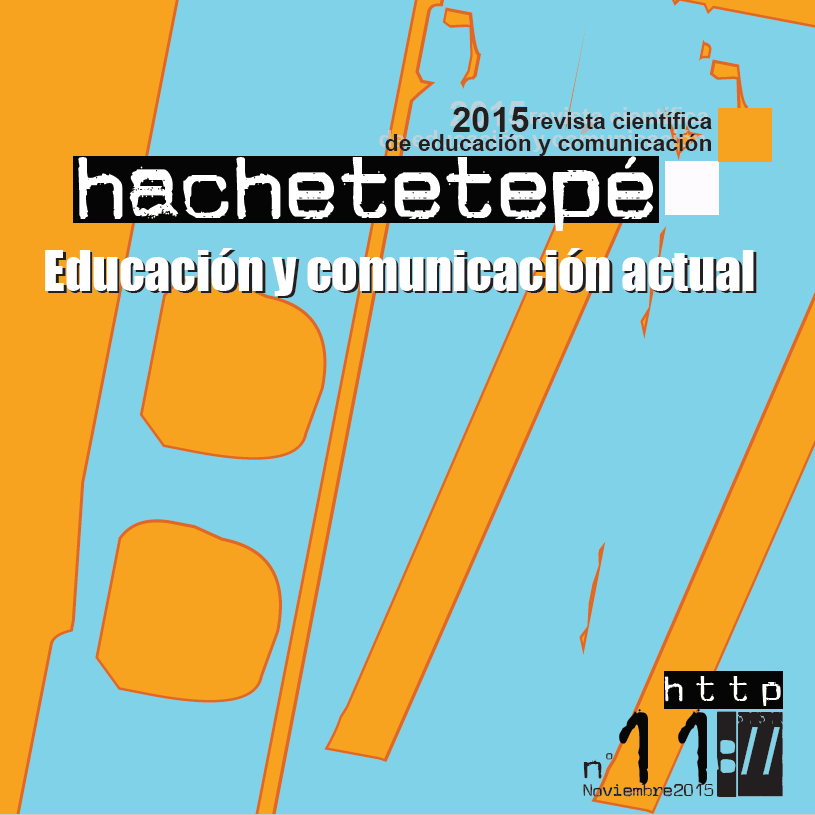Mobile learning between opportunities and risks. A critical thinking
Abstract
Often the introduction of the digital technologies in higher education is considered in itself as a panacea capable of improving its performance. These expectations are based on a theoretical framework that considers the technologies as isolated and autonomous factors, regardless of the activities for which they are employed and independently of the meaning and expectations that its users will perceive as well as the socio-cultural and organizational contexts where they are introduced and used. We are facing the risk that also mobile learning technology could be object of this interpretative bias. Our article aims to present its applications and development prospects.
Keywords
Downloads
How to Cite
License

This work is licensed under a Creative Commons Attribution-NonCommercial-NoDerivatives 4.0 International License.
Those authors who have published with this journal, accept the following terms:
- They will retain their copyright and guarantee the journal the right to first publication of their work, which will simultaneously be subject to the Creative Commons Attribution License . They may be copied, used, disseminated, transmitted and publicly displayed, provided that the authorship, url, and magazine are cited, and are not used for commercial purposes. No derivative works are allowed.
- They may adopt other non-exclusive license agreements for the distribution of the published version of the work (e.g., deposit it in an institutional telematic archive or publish it in a monographic volume) provided that the initial publication in this journal is indicated.
- Disseminate your work through the Internet (e.g., in institutional telematic archives or on your website) once the manuscript is accepted, which may lead to interesting exchanges and increased citations of the published work. (See The effect of open access).
Hachetetepé. Scientific journal of education and communication does not charge a fee for the submission of manuscripts or for the publication of its articles.
References
Cheon, J., Lee, S., Crooks, S. M. and Song, J. (2012). An Investigation of Mobile Learning Readiness in Higher Education Based on the Theory of Planned Behaviour. Computers & Education, 59 (3); 1054-1064.
Cowen, T. (2013). Average is Over. Powering America Beyond the Age of the Great Stagnation. New York: Dutton (trad. it. La media non conta più. Ipermeritocrazia e futuro del lavoro). Milán: Università Bocconi Editore.
Goodfellow, R. and Lea, M. R. (Eds.) (2013). Literacy in the Digital University. Critical Perspectives on Learning, Scholarship and Technology. Londres y Nueva York: Routledge.
Kearney, M., Schuck, S., Burden, K. and Aubusson, P. (2012). Viewing Mobile Learning from a Pedagogical Perspective. Research in Learning Technology, 20 (1); 1-17.
Kukulska-Hulme, A. (2005). Mobile Usability and User Experience, en Kukulska-Hulme, A. and
Traxler, J. (Eds.). Mobile learning: A Handbook for Educators and Trainers. Londres: Routledge; 45–56.
Kynäslahti, H. (2003). In Search of Elements of Mobility in Context of Education, en Kynäslahti, H. and Seppälä (Eds.). Mobile Learning, Helsinki. IT Press; 41-48.
Livingstone, S. (2012). Critical Reflections on the Benefits of ICT in Education. Oxford Review of Education, 38(1); 9-24.
Orton-Johnson K. and Prior, N. (Eds.) (2013). Digital Sociology. Critical Perspectives, Houndmills, Basingstoke. Hampshire y Nueva York: Palgrave Macmillan.
Rainie, L. and Wellman, B. (2012). Networked. The New Social Operating System. Cambridge, MA: The MIT Press.
Lupton, D. (2015). Digital Sociology. Londres y Nueva York: Routledge.
Pachler, N. (2009). Research Methods in Mobile and Informal Learning: Some Issues, en Vavoula, G.,
Pachler, N. and Kukulska-Hulme, A. (Eds.). Researching Mobile Learning: Frameworks, Tools and
Research Designs. Oxford: Peter Lang Publishing; 1–15.
Peters, J. D. (2015). The Marvelous Clouds. Toward a Philosophy of Elemental Media. Chicago: University of Chicago Press.
Selwyn, N. (2011). Education and Technology. Key Issues and Debates. Londres y Nueva York: Continuum.
Selwyn, N. (2014). Digital Technology and the Contemporary University. Degrees of digitalization. Londres y Nueva York: Routledge.
Sharples, M., Arnedillo-Sánchez, I., Milrad, M., & Vavoula, G. (2009). Mobile learning: Small devices, big issues, en Ludvigsen, S., Balacheff, N., Jong, T. D., Lazonder, A., and Barnes, S. (Eds.). Technology-enhanced Learning: Principles and Products. Berlin: Springer-Verlag; 233–249.
Silverstone, R. and Hirsch, E. (Eds) (1992). Consuming Tecnologies. Media and Information in Domestic Spaces. Londres: Routledge.
Turkle, S. (2011). Alone Together: Why We Expect More from Technology and Less from Each Other. Nueva York: Basic Book.
Wan, N. and Howard, N. (2013). A Framework for Sustainable Mobile Learning in Schools. British Journal of Educational Technology, Vol 44 No 5 2013; 695–715 (10-09-2015)
We are social, (2015). Digital, Social & Mobile in 2015. http://wearesocial.net/.
Wong, L-H, Milrad, M., Specht, M. (Eds.) (2015). Seamless Learning in the Age of Mobile Connectivity. Singapur, Heidelberg, Nueva York, Dordrecht y Londres: Springer.
Word Bank, (2015). Mobile cellular subscriptions (per 100 people). http://data.worldbank.org/ (10-09-2015)






